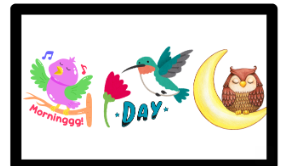Why search far and wide for the newest, flashiest ADHD treatment when one of the most effective—and overlooked—tools is literally free and built into our biology? I’m talking about sleep. Yes, that thing you already do (or try to do), just hopefully with fewer 2 a.m. TikTok binges.
Sleep is one of the foundational building blocks of ADHD management. Alongside nutrition and exercise, it’s part of the “big three” that keep the ADHD brain functioning at its best. When our symptoms flare, these basics are the first places to check in on. Because no amount of fancy planners, productivity hacks, or accountability buddies can replace what happens when your brain actually gets the rest it needs.

Why Sleep Matters (Especially for ADHD)
Sleep is not just “resting.” It’s when your brain does essential behind-the-scenes maintenance: filing memories, balancing mood chemicals, clearing out mental clutter, and resetting your attention system.
For those of us with ADHD, this is huge. A solid night of sleep can:
- Improve focus and sustain attention (goodbye, squirrel-level distractions).
- Calm hyperactivity (you might still fidget, but with less turbo boost).
- Strengthen impulse control (maybe you won’t buy that 3 a.m. air fryer).
- Boost emotional regulation and overall mood (less snapping at innocent bystanders).
When we skimp on sleep, though? ADHD symptoms often get magnified. You may feel foggy, irritable, and impulsive—basically like ADHD turned up to eleven.
Why ADHD and Sleep Problems Go Hand in Hand
Unfortunately, ADHD and restful sleep are like two magnets that refuse to line up. More than half of kids and up to 70% of adults with ADHD report sleep problems. Why? A few culprits:
- Neurochemistry quirks. People with ADHD often have imbalances in neurotransmitters like serotonin and dopamine, which play a big role in sleep cycles.
- Circadian rhythm differences. Our internal “body clocks” can run late, making it hard to feel sleepy at a “normal” bedtime.
- REM sleep challenges. Research suggests ADHD brains may struggle to enter and sustain deep, restorative REM sleep—so even a full 8 hours can feel like you got robbed.
- Medication side effects. Stimulants can linger in your system longer than you’d like, making bedtime feel like your brain is still in “go” mode.
- Cognitive hyperactivity. Aka the mental hamster wheel—thoughts, ideas, worries, random song lyrics—spinning when you’re trying to power down.
- Sleep is boring. Let’s be real: for a brain wired to chase novelty, lying still in a dark room is not exactly thrilling entertainment.

Chronotypes: Are You a Night Owl, Early Bird, or Hummingbird?
Here’s where things get even more interesting: not everyone’s biological clock is set to the same schedule. That’s where chronotypes come in.
- Morning larks spring out of bed ready to conquer the world before 9 a.m. (if this is you and you also have ADHD… please tell us your secrets).
- Night owls feel their best when the world is winding down. Many people with ADHD fall into this group, finding their focus actually improves at night. Unfortunately, the rest of society tends to disagree.
- The in-betweeners (sometimes called hummingbirds) fall somewhere in the middle.
Knowing your chronotype can help you align your schedule with your natural rhythms—when possible. Of course, jobs, school schedules, and family life aren’t always flexible, but understanding why mornings feel like cruel and unusual punishment can bring some self-compassion (and better planning).
The ADHD Twist: Revenge Bedtime Procrastination
Here’s a fun phenomenon you may already be unintentionally practicing: revenge bedtime procrastination.
This happens when you stay up way too late scrolling, streaming, or doing literally anything except sleeping—because it feels like the only “me time” you’ve had all day. It’s your way of rebelling against schedules, responsibilities, and constant demands. “Sure, I’ll be a zombie tomorrow, but at least I watched six episodes of that show I love!”
Sound familiar? For ADHD brains—already prone to time blindness and novelty-seeking—it’s basically the perfect storm. You crave downtime, lose track of time, and push sleep further and further away. The problem? You pay for it the next day with an even foggier brain and bigger ADHD challenges.
The Takeaway (For Now)
ADHD and sleep may not be natural best friends, but that doesn’t mean you’re doomed to exhaustion. In fact, sleep can be one of the most powerful tools in your ADHD toolbox. Understanding the “why” behind the struggle—your wiring, your chronotype, and sneaky habits like bedtime procrastination—is the first step toward real change.
In Part Two of this series, we’ll move from sleep theory to sleep strategy: how to actually set yourself up for better rest, what to avoid before bed, and how to craft a wind-down routine that doesn’t feel like punishment.
Sweet dreams (eventually).


